General Tips to Protect himself from Coronavirus by Eat Organic Food
Make a plan - take only what you need:Multiple cases of over-purchasing have been observed throughout the WHO European Region. Panic buying behaviour may have negative consequences, such as an increase in food prices, overconsumption of food and unequal distribution of products. It is therefore important to consider your own needs, as well as those of others. Assess what you already have at home and plan your intake. You might feel the need to purchase large amounts of foods, but make sure to consider and utilize what is already in your pantry, as well as foods with shorter shelf life. This way you can avoid food waste and allow others to access the food they need. Be strategic about the use of ingredients - prioritize fresh products:Use fresh ingredients and those that have a shorter shelf life first. If fresh products, especially fruits, vegetables and reduced-fat dairy products continue to be available, prioritize these over non-perishables.
Frozen fruits and vegetables can also conveniently be used over longer periods of time and often have a similar nutrient profile to fresh foods. To avoid food waste, you may consider freezing any leftovers for another meal. Take advantage of food delivery options:Although home-cooked meals should be prioritized, some cities and countries have rather advanced delivery systems for ingredients and ready meals, and many businesses are now starting to offer this service. Some solutions include “contact-less” options, where no human interaction is required, thus supporting self-quarantine and isolation measures. These should be prioritized, particularly from reliable businesses following strict food hygiene requirements. For food delivery and transportation, it is important to keep food at safe temperatures (below 5 °C or above 60 °C). Keeping in mind that these services might be overwhelmed, you might want to consider exploring what is available in your area. Be aware of portion sizes:It can be difficult to get portion sizes right, especially when cooking from scratch. Being at home for extended periods, especially without company or with limited activities can also lead to overeating. Seek guidance through your national food-based dietary guidelines on what constitutes healthy portions for adults and be mindful that young children will need smaller portions. Prepare home-cooked meals:During regular daily life, many individuals often do not have the time to prepare home-cooked meals. Spending longer periods of time at home may now offer the possibility to make those recipes you previously did not have time to make.
Many healthy and delicious recipes can be found online. Take advantage of the wealth of freely available information, and experiment with the ingredients you can access, but remember to keep in mind the principles for healthy eating offered in this guidance. Some examples of healthy recipes with accessible ingredients may also be found below. Follow safe food handling practices:Food safety is a prerequisite for food security and a healthy diet. Only safe food is healthy food. When preparing food for yourself and others, it is important to follow good food hygiene practices to avoid food contamination and foodborne diseases. The key principles of good food hygiene include:
By following these five key recommendations for safer food, you can prevent many common foodborne diseases. Limit your sugar intake:WHO recommends that ideally less than 5% of total energy intake for adults should come from free sugars (about 6 teaspoons). If you crave something sweet, fresh fruit should always be the priority.
Frozen fruits, canned fruits in juice rather than syrup, and dried fruits with no added sugar are also good options. When other dessert options are chosen, ensure that they are low in sugar and consume small portions. Watch out for low fat options, as these are often high in added sugars. Limit the amount of sugar or honey added to foods and avoid sweetening your beverages. Limit your fat intake:WHO recommends limiting total fat intake to less than 30% of total energy intake, of which no more than 10% should come from saturated fat. To achieve this, opt for cooking methods that require less or no fat, such as steaming, grilling or sautéing instead of frying foods. If needed, use small amounts of unsaturated oils like rapeseed, olive or sunflower oil to cook foods. Prefer foods that contain healthy sources of unsaturated fats, such as fish and nuts.
To limit saturated fats, trim excess fat from meat and poultry and choose skinless options. Reduce foods such as red and fatty meats, butter and full-fat dairy products, palm oil, coconut oil, solid shortening and lard. Avoid trans fats as much as possible. Read nutrition labels to ensure that hydrogenated oils are not listed in the ingredients. If food labels are not available, avoid foods which commonly contain trans fats such as processed and fried foods, like doughnuts and baked goods – including biscuits, pie crusts, frozen pizzas, cookies, crackers and margarine. If in doubt, minimally processed foods and ingredients are better choices. Consume enough fibre:Fibre contributes to a healthy digestive system and offers a prolonged feeling of fullness, which helps prevent overeating. To ensure an adequate fibre intake, aim to include vegetables, fruit, pulses and wholegrain foods in all meals. Wholegrains foods include oats, brown pasta and rice, quinoa and whole-wheat bread and wraps, rather than refined grain foods such as white pasta and rice, and white bread. Stay hydrated:Good hydration is crucial for optimal health. Whenever available and safe for consumption, tap water is the healthiest and cheapest drink. It is also the most sustainable, as it produces no waste, compared to bottled water.
Drinking water instead of sugar-sweetened beverages is a simple way to limit your intake of sugar and excess calories. To enhance its taste, fresh or frozen fruits like berries or slices of citrus fruits may be added, as well as cucumber or herbs such as mint, lavender or rosemary. Avoid drinking large amounts of strong coffee, strong tea, and especially caffeinated soft drinks and energy drinks. These may lead to dehydration and can negatively impact your sleeping patterns. Avoid alcohol or at least reduce your alcohol consumption:Alcohol is not only a mind-altering and dependence-producing substance, harmful at any level consumed, but it also weakens the immune system. Thus, alcohol use and especially heavy use undermines your body’s ability to cope with infectious disease, including COVID-19. It is recommended that alcohol, in general, be avoided, but especially when in self-quarantine. As a psychoactive substance, alcohol also affects your mental state and decision-making and makes you more vulnerable to risks, such as falls, injuries, or violence when under quarantine with someone else. Alcohol consumption is also known to increase symptoms of depression, anxiety, fear and panic – symptoms that can intensify during isolation and self-quarantine.
Consuming alcohol is not a good coping mechanism, neither in the short nor long term, although you might think that it will help you deal with stress. Alcohol also makes certain medications less effective, while increasing the potency and toxicity of others. Do not consume alcohol in combination with pain medication, as alcohol will interfere with your liver functions and might cause serious problems, including liver failure. Under no circumstances should you consume any type of alcoholic products as a preventive or treatment measure against COVID-19. Alcohol is not a necessary part of your diet and not part of a healthy lifestyle and should therefore not be on your shopping list. Coronavirus CureMostly doctor said: Coronavirus affected person must isolate himself. Eat organic and pure food like Honey(Robinia Honey, Sidr Honey, Ajwain Honey, Rose Honey). Organic food may help against heart disease. People who choose organic powders like coconut powder, almond powder, blackseed powder, sandalwood powder and vegetable oil like Olive Oil, Flaxseed Oil, Coconut Oil to avoid pesticides and other chemicals may have another reason to buy organic. People should use moringa powder as it is an immunity booster. In recent days while everyone is fighting against corona which attacks badly those people who have weakened immunity and can't fight against it.
Only people with strong immunity can survive by fighting against corona. Many researcher papers and studies show that elder and children have weakened immunity and suffer from corona with a high mortality rate.
Therefore moringa is essential for everyone especially elders and children to stronger their immunity to fight against corona.
Because people who have weakened immunity can't fight against corona, which causes a high mortality rate. Therefore, moringa is the best choice to strengthen your immunity
Aloe vera juice has an antiviral, antibacterial and antifungal activity to fight against different diseases.
People should use moringa powder as it is an immunity booster. In recent days while everyone is fighting against corona which attacks badly those people who have weakened immunity and can't fight against it.
Only people with strong immunity can survive by fighting against corona. Many researcher papers and studies show that elder and children have weakened immunity and suffer from corona with a high mortality rate.
Therefore moringa is essential for everyone especially elders and children to stronger their immunity to fight against corona.
Because people who have weakened immunity can't fight against corona, which causes a high mortality rate. Therefore, moringa is the best choice to strengthen your immunity
Aloe vera juice has an antiviral, antibacterial and antifungal activity to fight against different diseases.
What are the main aloe vera juice benefits?Aloe vera juice is full of amino acids, vitamins and minerals, making it one of nature’s most effective cleansers. It can help strengthen digestion and rid the body of any nasty waste, thus naturally detoxifying the body,’ says Sebastian. ‘It’s soothing, cooling and moistening, which helps to clear inflammatory and irritating heat, such as in menopause, plus inflammatory skin and digestive problems, such as acne, rosacea and IBS.’Does Aloe vera juice support the immune system?Aloe vera is packed full of immune-boosting polysaccharides which help the immune system to behave properly.’  ‘Too much inflammation in the body can cause problems within the immune system and conditions like asthma, eczema, breathing disorder as in COVID-19 and Crohn’s disease. Soothing herbs like aloe vera juice can slow the inflammatory cascade and help reorder the immune response to prevent these conditions especially in Corona Virus attack.’
‘Too much inflammation in the body can cause problems within the immune system and conditions like asthma, eczema, breathing disorder as in COVID-19 and Crohn’s disease. Soothing herbs like aloe vera juice can slow the inflammatory cascade and help reorder the immune response to prevent these conditions especially in Corona Virus attack.’
Does Aloe vera juice lower cholesterol and blood sugar?Some evidence suggests aloe vera lowers cholesterol and has a positive effect on blood sugar levels, meaning it’s useful for treating diabetes and obesity. Aloe vera juice is excellent for digestion ‘It’s worth trying for anyone who suffers with digestion problems like IBS, as aloe vera juice has healing and soothing properties, which could help with the painful symptoms.’ |


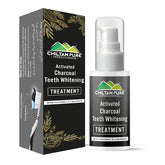

![Red Onion Oil 🧅 Reduces Hair Fall & Accelerates Hair Regrowth [پیاز کا تیل].. Trending.... 🔥 - ChiltanPure](http://chiltanpure.com/cdn/shop/products/red-onion-oil-reduces-hair-fall-amp-accelerates-hair-regrowth-piaz-ka-til-trending-394813_165x.jpg?v=1707464619)
![Red Onion Oil 🧅 Reduces Hair Fall & Accelerates Hair Regrowth [پیاز کا تیل].. Trending.... 🔥 - ChiltanPure](http://chiltanpure.com/cdn/shop/products/red-onion-oil-reduces-hair-fall-amp-accelerates-hair-regrowth-piaz-ka-til-trending-329640_165x.jpg?v=1708127491)
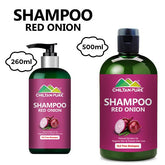

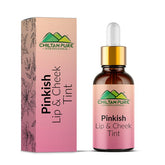

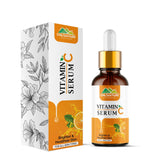



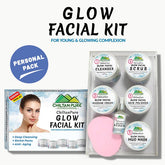

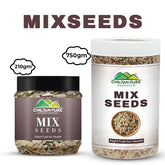

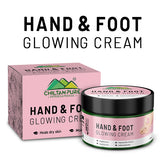








Leave a comment
Please note, comments need to be approved before they are published.